- Home
- Charles de Lint
Spirits in the Wires Page 2
Spirits in the Wires Read online
Page 2
put enough of them in a line
and who knows where
they will take you.
—SASKIA MADDING,
“Corridor” (Mirrors, 1995)
Saskia Madding
I remember opening my eyes and—
You know how if you blow up an electronic image too much, you don’t have a picture anymore? When you push the image that far, all you really have left is a pixelated fog, a screen full of tiny coloured squares that don’t form a recognizable pattern, never mind an image.
That was the first thing I saw.
I opened my eyes and I couldn’t focus on anything. A hundred thousand million dots of colour and light filled my vision. I stared hard, trying to make sense of them, and slowly they started to come together, forming recognizable objects. A dresser. A cedar chest. An armchair with clothes draped over the arms and back. A closed wooden door. A poster from the Newford Museum of Art advertising a retrospective of Vincent Rushkin’s work. Close by my head on the night table was an unlit candle in a brass holder, and a leather-bound book with a pattern of pussywillows stamped into the leather, a fountain pen lying on top of it.
It was all familiar, but I knew I’d never seen it before. Just as I myself was familiar, but I didn’t know who I really was. I knew my name. I knew there was a computer and paper trail tracing my background—where I was born, grew up, went to school—but I couldn’t actually recall any of it. The details of the experiences, I mean. The sounds, the smells, the tactile impressions associated with them. All I knew were the bare bones of cold facts.
I studied the explosion of pigeons in the painting they’d used in the poster for the Rushkin show and tried to make sense of how I could be in my own bedroom, but have no sense of where it was or how I got here or anything that had happened to me before I opened my eyes at that moment.
And I was strangely calm.
I knew I shouldn’t be. Somewhere a part of me was registering the fact that none of this was right—neither the where and how of where I’d found myself upon waking, nor my reaction to it.
I had the strongest sense of being temporary. A shadow cast by a light that was about to move or be turned off. An image in a film that the camera had lingered up on before moving on.
I held one of my hands up in front of my eyes, then the other. I sat up and looked at the reflection of the woman in the mirror on the back of the dresser.
Me.
A stranger.
But I knew every inch of that face—the blue eyes, the shape of the nose and lips, the way the blonde hair fell in a sleepy tangle on either side of it.
I swung my feet to the floor and stood up. I pulled the flannel nightie I was wearing over my head and faced the mirror again.
I knew this body as well.
Me.
Still a stranger.
I sat down on the edge of the bed. Plucking the nightie from the floor, I hugged it to my chest.
An odd notion came into my head. I had a sudden impression of some other place, a pixelated realm that lay somewhere in cyberspace—that mysterious borderland of electrons and data pulses that exists in between all the computers that make up the World Wide Web. I could almost see this deep forest of sentences and words secreted in a nexus of the Web, and as I did, I sensed some enormous entity swelling up out of it, a leviathan of impossible proportions that had no physical presence, but it did have a vast and incomprehensible soul.
The thought came to me that I was a piece of that entity. That I had been broken off from it, born there in that forest of words and sent away. That I was separate, but also still a part of that other. That it had made me up through some curious technopagan ritual, given me flesh and then set me free to make a life for myself in the world beyond the endless reaches of cyberspace.
I know. It sounds like science fiction. And maybe it was. But it was magic, too. How else can you explain a computer program that was self-aware? Some voodoo spirit, itself made of nothing but ones and zeros, that was able to create a living being out of neurons and electricity and air and send it off into the world to be its own being.
The island of calm I’d sensed before whispered to me through this whirlpool of disquiet and speculation.
In a normal person, it said, what you are experiencing would be considered madness.
But I already knew I wasn’t normal. I wasn’t even sure I was a person.
Finally, I lay back down on the bed and closed my eyes.
Maybe it was all a dream. Maybe when I woke up in the morning I’d remember my life. I’d be myself and just shake my head as I went about my morning, dimly recalling the very strange dream I’d had the night before.
But in the morning, nothing had really changed. Only the force of what I was feeling had.
I could see normally as soon as I opened my eyes. The sensations of dis-association and confusion I’d experienced in the middle of the night were still there, but they weren’t as intense.
This time I was able to get up and get as far as the door of the bedroom. I looked down the hallway into familiar/unfamiliar territory. I/my body had to pee—but it was something I only knew from the pressure in my bladder. I knew the mechanics of how I would do it. I knew where to go, to lift the lid, and sit down. But I couldn’t seem to call up one memory of the actual experience. The only real, tactile memories I had were of waking last night.
Panic came rolling up through my body, quickening my pulse, making me sweat, creating a worse confusion in me than I was already feeling.
Let it go, that small calm place inside me said. Stop thinking about it for the moment. Give your body control—it knows what to do.
What did I have to lose?
I took a deep, steadying breath. Another. I don’t even know how I did it, but somehow I managed to step back from the panic and confusion and follow the voice’s advice.
I was like a passenger as I made my way to the bathroom, peed and showered. Back in my bedroom, I looked in the closet and was momentarily overwhelmed by the choices. It’s not that there were a lot of clothes— because there weren’t. But there was still too much choice. I was still confounded by knowing exactly what all the various materials were, but not what it would be like to touch or wear them—their texture, their weight, the feel of how the fabric would hang.
I took another steadying breath and let the decision go. I watched as I chose a cotton T-shirt and a pair of jeans, enjoyed the sensation of the cloth as it covered me. Slipped on a pair of moccasins and wiggled my toes in them.
It wasn’t until after I’d made toast and coffee and was still drinking the coffee at the kitchen table that the immensity of my disassociation began to ease. It came and went throughout the rest of the day, like the ebb and flow of some inexplicable tide, but the troughs and crests began to even out and calm.
The oddest thing was how whenever I had a question about something, that calm voice would speak up from the back of my mind in response. Like when I took the coffee from the fridge and I wondered about the beans as I spooned some into the grinder.
Coffee, the voice in my head said. It’s a beverage consisting of a decoction or infusion of the roasted ground or crushed seeds (coffee beans) of the two-seeded fruit (coffee berry) of certain coffee trees. It can also be the seeds or fruit themselves, or any of various tropical trees of the madder family that yield coffee beans, such as Coffea arabica and C. canefora.
It was like I had an encyclopedia sitting in the back of my head. One that knew everything.
I didn’t leave the apartment all day. I didn’t dare. I explored its four rooms—bedroom, kitchen, bathroom, and the final all-purpose room that looked to be a combination of study, library, office, and living room. I opened the patio door that led out of that last room, but I didn’t go onto the balcony. I simply stood in the doorway and studied the street below, the buildings on the other side.
Mostly I poked through the books and magazines I found, studied the contents of my purse and the wall
et inside it, turned on the computer and explored its various document files.
It turned out I wrote poetry. A fair amount of it. I’d had three collections published, with enough in these files for at least a couple more, though some of the poems were obviously works-in-progress.
I also did freelance writing for various on-line magazines and wrote some op-ed pieces for Street Times, a little paper produced mostly by street people for street people—to give them something to sell in lieu of asking for spare change.
I found a financial program and saw that while I wasn’t rich by any means, I had enough money banked to keep me solvent for a few months. When I thought about where that money had come from, my own work history popped up in my head. Dates, places of employment, job descriptions, salary and benefits. But I had no personal, hands-on memories of even one of these places where I was supposed to have worked.
I closed all the files and turned off the computer.
After a supper of asparagus, tomato, feta cheese and shredded basil on a small bed of pasta, I was finally able to go outside and sit on the wicker chair I found out on the balcony. The flavour of my meal still lay on my palate, the food itself a comforting pressure in my stomach. It was dark now, the city lit up with lights, but I was safe and unseen in a pool of shadow since I’d turned out the lights in the room behind me.
I watched the people passing below, each of them a story, each story part of somebody else’s, all of it connected to the big story of the world. People weren’t islands, so far as I was concerned. How could they be, when their stories kept getting tangled up in everybody else’s?
But all the same, I understood loneliness right then. Not the idea of it, but the empty ache of it inside me. How one could live in a city of millions and realize that there was not one person who knew or cared if I lived or died. I searched my mind, but nowhere in amongst the neat and orderly lines of facts and work histories was there the memory of someone I could call a lover, a friend, or even an acquaintance.
That will change, the calm voice in the back of my head assured me.
But I didn’t know—not how my life could have come to this, or if it even should change. Either I was so unlikable that I’d been unable to make a single friend in the—I counted out the years from the facts in my head— four years since I had apparently moved here from New Mexico—or I was some kind of freak. Neither, it seemed to me, deserved friends.
I dreamed that night that I was flying, soaring, not over city streets, but over circuit boards, and rivers of electricity. …
The next morning—my second that I could truly recall—I felt a little better. I still had a lack of hands-on memories and a calm, quiet voice in the back of my head that was happy to play encyclopedia for me, but the weight of a full day’s experience seemed to have steadied me. Even if all I’d done for the whole day was wander around in my apartment and then get terribly depressed as I sat out on the balcony in the evening, that one day still felt as though it had anchored me to the real world.
In the morning light, things didn’t seem quite so bleak, so desperately black and white, it had to be this way or that. I was able to consider that I might be different and it didn’t cripple me. Last night’s loneliness and despair had no real hold on me this morning. I didn’t know quite how or where, but I was sure I had to fit in someplace.
Today I meant to go outside.
I finished my coffee and washed my breakfast dishes, then put on a pair of running shoes. I found my purse. After checking it for apartment keys, I stepped out into the hall.
My neighbour across the way opened his door at the same time and smiled at me.
“So there is someone living in that apartment,” he said. “I’m Brad.” He jerked a thumb over his shoulder. “In 3F, as you can see.”
“I’m Saskia,” I said and we shook hands.
He was nice looking guy, dark-haired and trim, dressed in casual clothes. I could tell he liked what he saw when he looked at me and that made me feel good. But as we stood there talking for awhile, I saw something change in his eyes. It wasn’t like I had a bit of egg stuck between my teeth or something. I was just making him uncomfortable. By the time we’d walked down the two flights of stairs to the streets, I got the sense he couldn’t get away from me quickly enough.
He gave me a brusque goodbye when we reached the street and headed off in the direction I’d been planning to go. I stood there by the door of the building, letting some space build between us before I set off myself. While I waited, I went back over our conversation, trying to see what it was I’d said or done to make his initial attraction toward me cool off so quickly. I couldn’t think of a thing. Whatever it was seemed to have happened on some purely instinctual level—almost a chemical imbalance between us. The longer he was in my presence, the stronger it had become.
I won’t say I wasn’t disturbed by it, because I was. But there was nothing I could do about it now. He’d finally reached the end of the block, so I started off myself, aiming for the Chinese grocery store on the other side of the street, across from where he was. By the time I reached the corner, he was long gone.
There was a scruffy little dog tied up outside the grocery store, one of those mixes of a half-dozen breeds, but the terrier seemed strongest. He watched me approach, tongue lolling, a happy dog look in his eyes.
“Hey, pooch,” I said, bending down to give him a pat.
He snapped at me and I only just pulled my hand back in time to avoid getting bitten. He was still growling at me as his owner came bustling out from the store.
“Rufy,” she said. “Don’t do that.” She turned to me. “I don’t know what’s gotten into him,” she added. “Rufus is usually so sweet tempered.”
But I could see the same instinctive discomfort start up in her eyes as I’d already seen in her dog’s, and in my neighbour’s eyes earlier. Before it grew too strong, I slipped past her into the store where I picked up some milk, a bag of rice, and some vegetables for a stir fry. I completed the transaction as quickly as I could, not looking at the elderly Chinese man behind the counter. When I was outside the store again, the woman and her dog were already gone.
I stood there for a long moment, just watching the traffic at the intersection and not knowing what to do.
I was ready to retreat to my apartment, to stay there and stubbornly wait for them to show up—the people who had played around in my head and erased most of my memory, or the people who had created me and left me there to fend for myself. I didn’t know which, but it had to be one or the other.
For a moment I had a shivering recollection of some invisible voodoo spirit in cyberspace, but that I firmly put out my mind. No, whatever the origins of my present condition, they weren’t that improbable.
But maybe I’d been in an accident. Banged my head on something.
I felt through my hair, searching for bumps or a sore spot, but could find neither. That didn’t really prove anything. It could have been a while ago. Or it could be some recurring medical problem. Perhaps there was someone coming to check up on me—I just couldn’t remember who, or when they’d come.
Or I could be crazy.
I took the long way back to my apartment, circling the block that the grocery store was on. When I saw a homeless man sitting in the doorway of an abandoned store, I dug into my pocket for a dollar. I dropped it in his hat and smiled down at him, ready for a repeat of the reactions I’d already gotten from the other people I’d met so far today.
But he only returned my smile.
“Thanks, lady,” he said. “You have a good day.”
I couldn’t tell his age—it could have been anywhere between thirty and sixty—but he had kind eyes. They were deep blue, clear and alert, which seemed a little at odds with his shabby clothes and weather-beaten skin. They were the eyes of someone at peace with the world, not someone living on the street and barely able to eke out a living.
“I’ll try,” I told him. “So far it’s sucked big
-time.”
He nodded, eyeing me in a way that put me on edge again.
“Maybe you should try and turn down that shine of yours a watt or two,” he said before I could go. “My guess is that’s what’s making people so uncomfortable around you.”
I just stared at him, not really sure what I was hearing.
“What did you say?” I asked.
“Come on,” he said. “Don’t tell me you don’t know. You’ve been touched by something—call it whatever you want. A mystery, the spirits, some kind of otherness. It’s left a shine on you that most people aren’t going to see, but they’ll feel it and it’s going to make them feel edgy and weird. It’s like the world’s shifting under their feet and no one likes that feeling.”
“And it doesn’t bother you?”
He shrugged. “I know what it is. I also know it’s not going to hurt me. So why would I be bothered?”
“How do you know all this?” I asked.
“Hey,” he said. “I wasn’t always a bum, you know. I used to run a New Age head shop and while we sold a lot of let’s pretend, some of our customers were the real thing and I learned a thing or two from them. Reading auras is pretty basic stuff.”
“What happened?”
“I wasn’t paying attention. That’s the big lesson life teaches you: You always have to pay attention. Your marriage broke up? You weren’t paying attention. Your partner cleans out your bank account and sells all your store’s assets, leaving you bankrupt?”
He gave me an expectant look.
“You weren’t paying attention,” I said.
He nodded approvingly. “Exactly. I lost everything when the creditors came calling.”
I crouched down, sitting on my haunches, so that our heads were level with each other.
“I’m sorry,” I said.
“Yeah, me, too. But it’s all water under the bridge now. Life goes on and most of us, we’re just along for the ride.”
A bus came by, making conversation impossible for a moment.
“So how do I turn down this … shine thing?” I asked when it was gone.

 Widdershins
Widdershins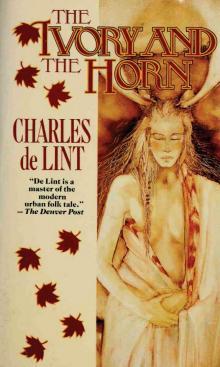 The Ivory and the Horn
The Ivory and the Horn Yarrow
Yarrow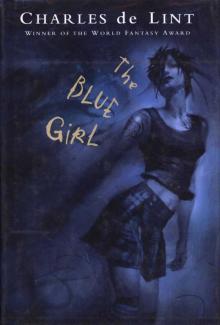 The Blue Girl
The Blue Girl Spirits in the Wires
Spirits in the Wires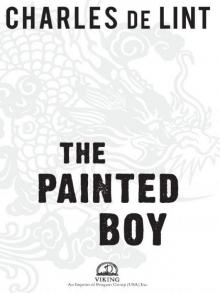 The Painted Boy
The Painted Boy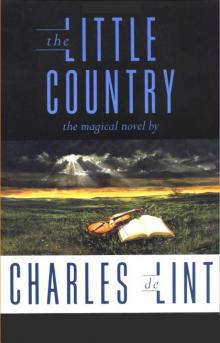 The Little Country
The Little Country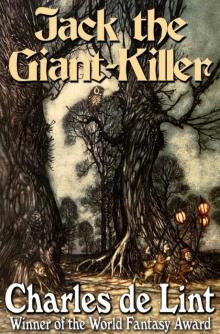 Jack of Kinrowan: Jack the Giant-Killer / Drink Down the Moon
Jack of Kinrowan: Jack the Giant-Killer / Drink Down the Moon Moonheart
Moonheart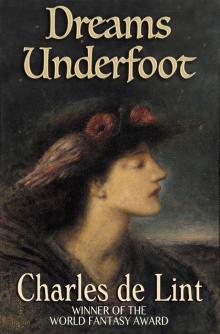 Dreams Underfoot
Dreams Underfoot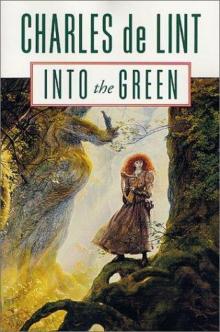 Into the Green
Into the Green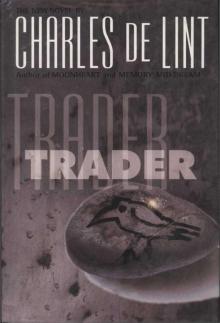 Trader
Trader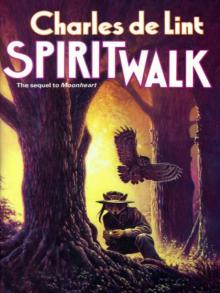 Spiritwalk
Spiritwalk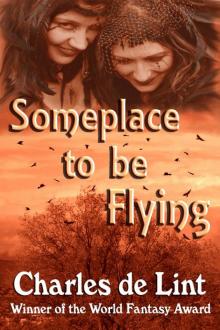 Someplace to Be Flying
Someplace to Be Flying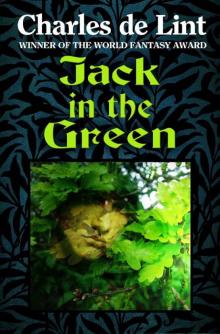 Jack in the Green
Jack in the Green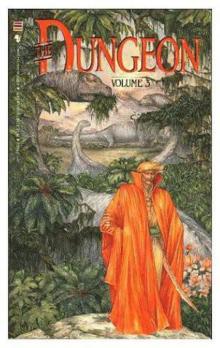 The Valley of Thunder
The Valley of Thunder Out of This World
Out of This World The Cats of Tanglewood Forest
The Cats of Tanglewood Forest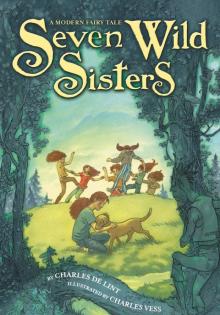 Seven Wild Sisters
Seven Wild Sisters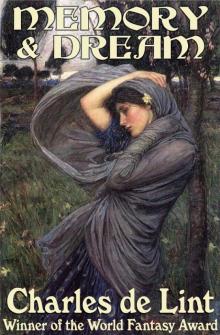 Memory and Dream
Memory and Dream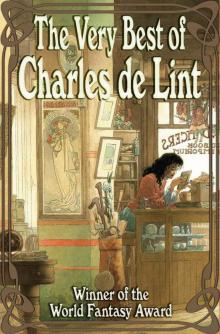 The Very Best of Charles De Lint
The Very Best of Charles De Lint Under My Skin
Under My Skin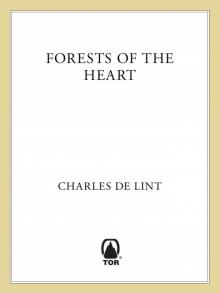 Forests of the Heart
Forests of the Heart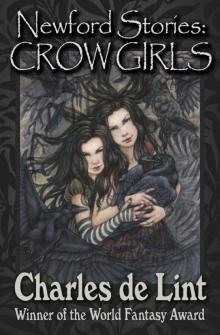 The Newford Stories
The Newford Stories Moonlight and Vines
Moonlight and Vines Angel of Darkness
Angel of Darkness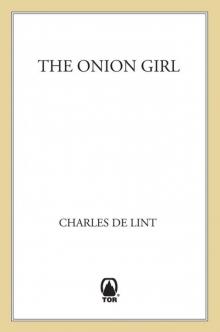 The Onion Girl
The Onion Girl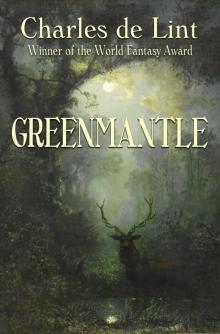 Greenmantle
Greenmantle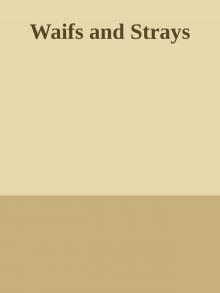 Waifs And Strays
Waifs And Strays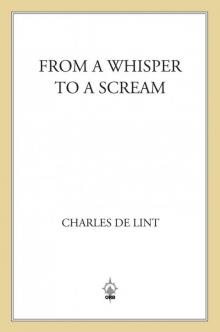 From a Whisper to a Scream
From a Whisper to a Scream Over My Head
Over My Head The Ivory and the Horn n-6
The Ivory and the Horn n-6 Our Lady of the Harbour
Our Lady of the Harbour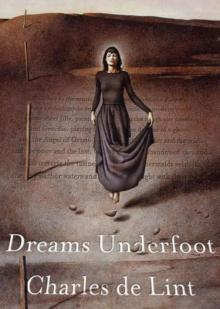 Dreams Underfoot n-1
Dreams Underfoot n-1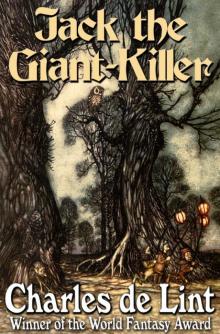 Jack the Giant-Killer (Jack of Kinrowan Book 1)
Jack the Giant-Killer (Jack of Kinrowan Book 1)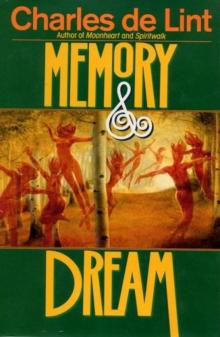 Memory and Dream n-5
Memory and Dream n-5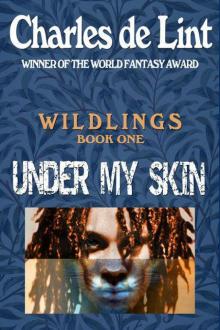 Under My Skin (Wildlings)
Under My Skin (Wildlings)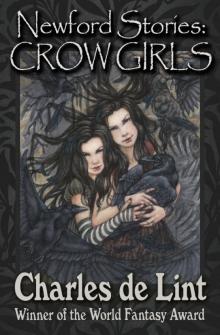 Newford Stories
Newford Stories The Wind in His Heart
The Wind in His Heart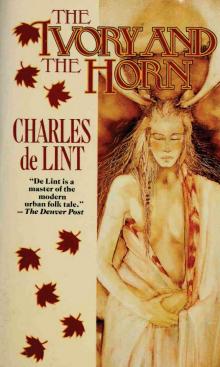 Ivory and the Horn
Ivory and the Horn